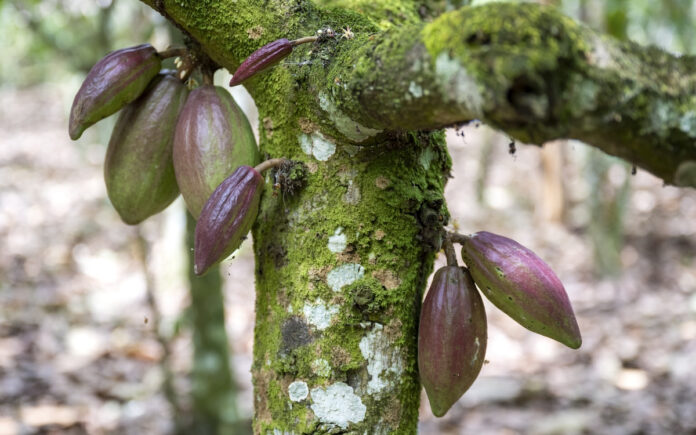Abidjan: A prolonged dry spell across Ivory Coast’s key cocoa-growing regions is threatening to delay the April-to-September mid-crop harvest, potentially leading to a shortage of cocoa beans, farmers warned on Monday. The West African nation, the world’s largest cocoa producer, is currently in its dry season, which lasts from mid-November to March. However, farmers say this year’s heat is more intense than the previous year, exacerbating concerns over crop yields.
With soil moisture levels depleting rapidly and excessive heat causing leaves to dry out, farmers say they no longer expect high-quality cocoa beans at the start of the mid-crop season in April. Some warned that without at least two heavy rains before the end of February, the mid-crop could begin sluggishly, leading to a possible bean shortage.
Growers in central Ivory Coast have expressed worries over the health of their plantations, as prolonged dry conditions have left many trees weakened.
“When you look at the foliage of some plantations, you think it’s swollen shoot disease (which reduces crop yields before killing trees). But it’s the heat and lack of rain that cause leaves to fall,” said Stephane M’Bra, a farmer near Daloa, a key cocoa-producing region in the west-central part of the country.
No rain was recorded in Daloa last week, leaving rainfall levels 5.5 millimeters (mm) below the five-year average. A similar trend was observed in the central region of Bongouanou, which received only 0.5 mm of rain, and Yamoussoukro, where no rainfall was recorded.
Also Read | France in Talks to Acquire India’s Pinaka Rocket Launcher System
In western Soubre, southern Divo, eastern Abengourou, and southern Agboville, farmers noted that rainfall was below average. However, some growers remained optimistic, believing that crop development could still proceed well.
“Overall, it’s going well. We’re not worried at the moment,” said Andre Kokola, a farmer near Agboville, where 11.9 mm of rain was recorded last week, 5 mm above the five-year average.
Last week’s average temperature across Ivory Coast ranged from 28.7 to 30.8 degrees Celsius, reinforcing concerns that persistent heat could further strain cocoa production.



